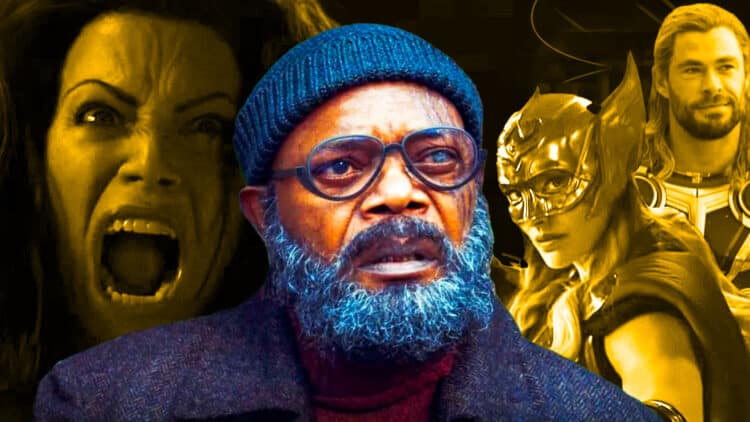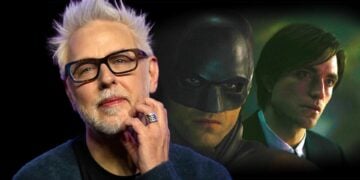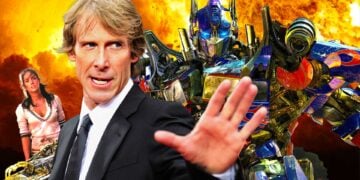Unless you’ve been on a sabbatical in the Himalayas, you’re pretty aware that the MCU is not doing so great right now. In fact, many fans will say the MCU sucks right now. Yeah, Marvel has released some decent movies like Black Panther: Wakanda Forever (it’s not that bad), which pushed the box office barometer past the $800 million mark; not bad numbers, but in context, when looking at the entire scope of the MCU, the rest of the smouldering pile of ash polluting the movie landscape tells a different picture. There are many theories as to why Marvel is not doing well, but we can lay all of them to rest and pinpoint the leading cause: the MCU directors and writers hate the comics – simple as that!
Marvel Is Not Looking Too Good
The MCU is still a behemoth, gorging on substantial revenue collected over the last few years. However, the Spider-Man movies were the only films pushing past the billion-dollar mark and Spider-Man: Far From Home and Spider-Man: No Way Home were the only star-children which have garnered universal acclaim from critics and fans since Avengers: Endgame while syphoning huge numbers from the collective box office.
Other releases, such as Black Panther: Wakanda Forever, Dr Strange: In The Multiverse of Madness, and Thor: Love and Thunder, have had significant numbers at the box office but have been met with mediocre reviews and should have, in fact, each clocked in with billion-dollar revenue when you consider they had a large built-in audience due to previous films featuring the same characters.
Thor: Love and Thunder and Dr Strange: In The Multiverse of Madness should have been bigger films. Thor was arguably the number two most prominent MCU character after Spider-Man once Cap and Tony left the MCU. Thor: Love and Thunder actually underperformed when you think about it, and to make things worse, it received less than stellar reviews. Many average moviegoers were more upset about the film than professional critics, who were more permissive toward Taika Waititi’s messy sequel to Thor: Ragnarok.
Everything Fans Believed Was True
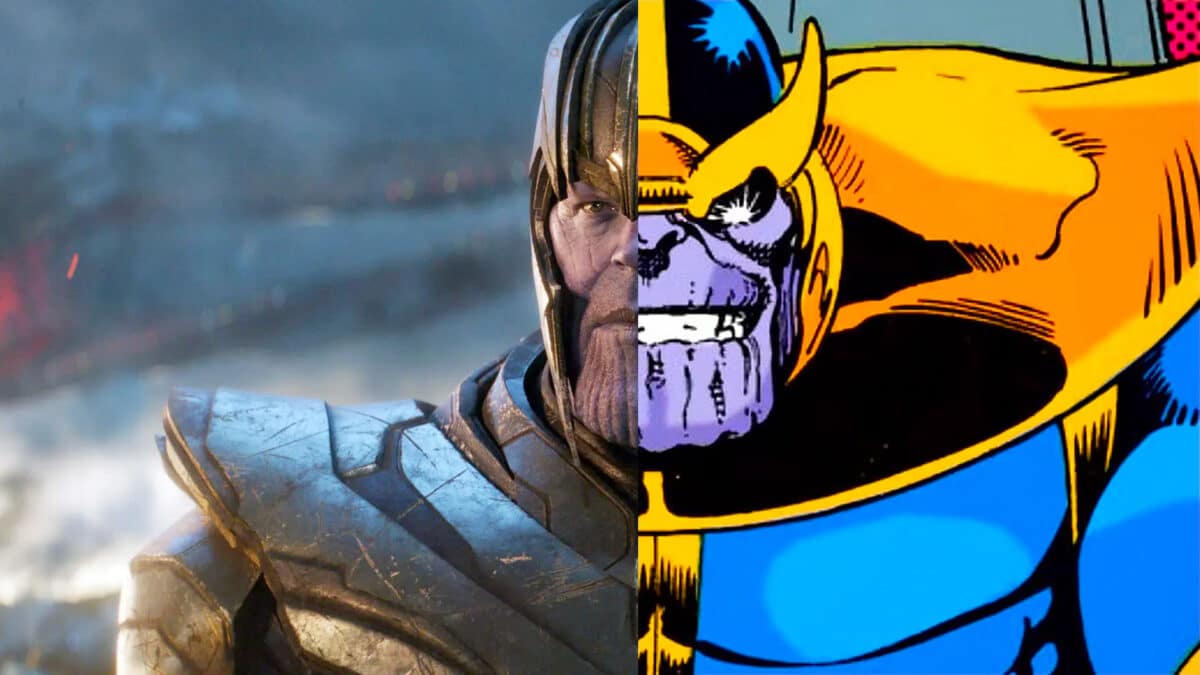
Fans have accused Marvel of hating on their source material for years. They change characters, avoid essential plot points and create new stories and characters out of thin air. When the films do well at the box office, and critics rate them highly, it’s easy to brush complaints by fans aside, but when the box office starts to decline, and critics begin to wake up and be negative, then their ignorance and aversion to the source material becomes problematic and highlighted in the press.
Many MCU adaptations have missed the point of the comics. The Captain Marvel film was one example that didn’t understand the war between the Skrulls and the Kree. In the comics, both Kree and Skrull are bad, whereas in the movie, the Kree are the villains. Perhaps the biggest twist in the MCU was in Thor Ragnarok, which completely changed and twisted the Planet Hulk storyline.
Using the stories from the comics as a jumping-off point and not caring to faithfully adapt comics is a dangerous game; ask Amazon and the makers of the Rings of Power. Though not based on comics, that series is a prime example of being arrogant enough to think you know better than the source material. Rings of Power fell in the ratings faster than Sauron’s Tower of Barad-Dur after the ring plopped into the fires of Mount Doom. Rings of Power is a cautionary tale that Marvel should have been wise enough to learn from.
Comic book fans know that the MCU has been disrespecting their comics, but no one cared when things were going well. The Infinity Saga changed the original stories but respected the comics just enough to keep everything running smoothly. The other reason no one cared was that Kevin Feige, his writers, and directors were telling exciting and engrossing stories. As long as the stories were good, they were given a pass despite ignoring the comics.
Disney+ Is A Hotbed Of Disrespect To The Comic Books
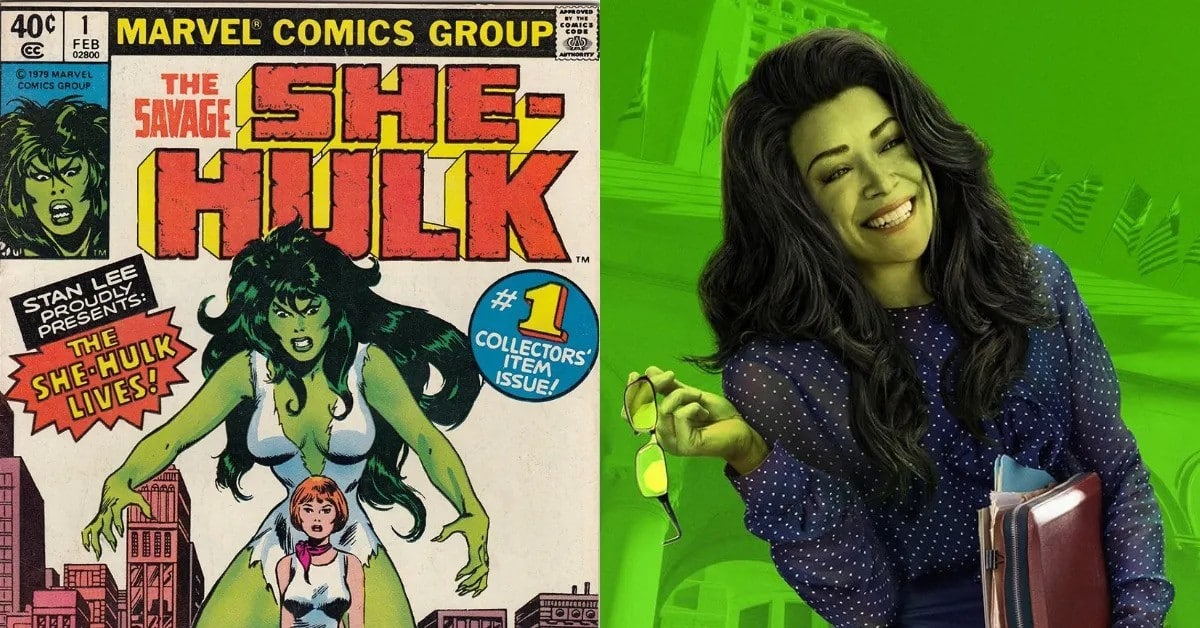
The MCU’s jump to streaming has not been a bed of roses for the studio. It’s where Marvel has taken some of its biggest knocks. The Marvel brand has suffered primarily due to She-Hulk, Secret Invasion and Ms Marvel, which have been divisive and poorly received by die-hard fans. Kevin Feige and his creative cohorts have been playing fast and loose with Canon since the beginning of the MCU. Still, once Disney+ went online, Feige and the gang went into overdrive, tinkering and changing comic book plots and characters with reckless abandon.
Take Secret Invasion, for instance; the television adaption of the famous comic book alters radically from the original story, alienating comic book geeks. The poor scripting, as well as the radical changes to Nick Fury’s character, alienated general MCU fans, who disliked the new version of Fury, as well as were turned off by new characters such as Emilia Clark’s G’iah and Skrull brat, Gravik, portrayed by Kingsly Ben-Adir.
She-Hulk is another perfect example. The series was a battle between comic book and MCU fans on the one hand and Kevin Feige and the show’s head writer, Jessica Gao, on the other. The series finale went mega-meta, breaking the fourth wall to the extreme with She-Hulk antagonising social media commentators (represented in the show by the evil Intellegensia) who hate the current direction of the MCU.
Has Anyone In The MCU Read A Comic?
Marvel’s downward trajectory can be traced to Black Widow. The film had a black cloud hanging over it. Covid-19 stifled the film’s release, and Scarlet Johansson’s legal battles with Disney also swirled around the film’s debut. The movie’s low box-office numbers were not simply due to Covid and streaming but also due to the uneven plot and misfires with the characters, like Natasha and Yelena, who didn’t connect as strongly with audiences as would be expected.
Once again, the main reason for this can be found in how the writers and creative teams behind the MCU films view the comics and the source material. Social media commentators have incessantly accused Marvel and Disney of not respecting the source material, but after Avengers: Endgame, this disrespect kicked into high gear. Once you understand how little respect is given to the comics, it begins to make sense why the MCU has been on a downward trajectory these last five years.
An online montage featuring various MCU writers and directors is evidence of Disney and Marvel’s disdain for their own material. Writers for movies and series like She-Hulk, Black Widow, Thor, etc., all gloat and confess how they have not read the source material nor considered following the comics to tell stories about these characters. Jessica Goa, talking about writing for She-Hulk, said flippantly, “I wasn’t super into superhero comics, I read alot of like indie press, stuff…”
Taika Waititi was even more blasé, saying he never read a Thor comic book in his life. While doing promo for Thor: Ragnarok, he said, “When the DVD comes out, I’m going to read a Thor comic and see where we went wrong.” Prophetic words by Taika, he needed to read a Thor comic after Thor: Love and Thunder. His movie butchered Gor, the god Butcher, neutering the character by watering him down; he also wasted Christian Bale, who, while giving an excellent performance, could have been even better if Taika respected the comics, read the material in-depth and attempted to be more faithful to the source.
Fans have been right all along, but no one cared to listen to them, especially Marvel and Disney, because the money kept rolling in, and critics were praising each film. As the landscape begins to change, ignorance and hate for the comics should be the only thing on their lips if they want to fix the problems at the studio. MCU fans of all stripes should be appalled at this state of affairs, while film analysts need not look much further to determine why Marvel and Disney are releasing films and series like The Marvels, which crash and underperform at the box office.
Do you think the MCU sucks now, and can we lay the blame for that on hatred for the comics?

